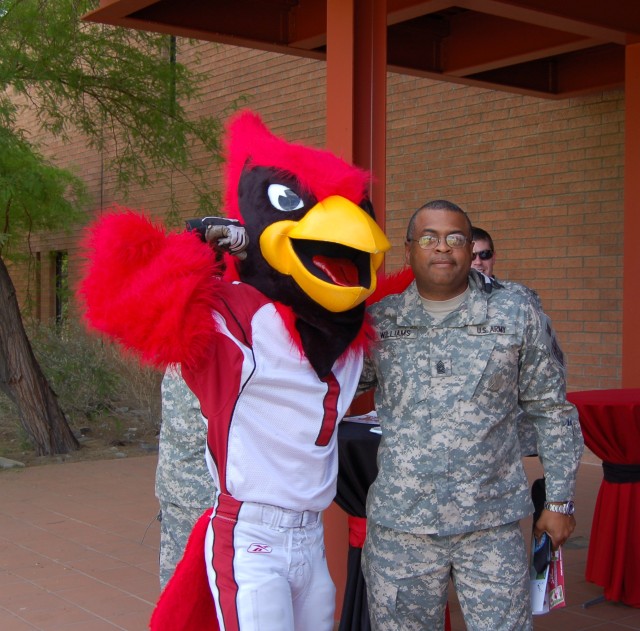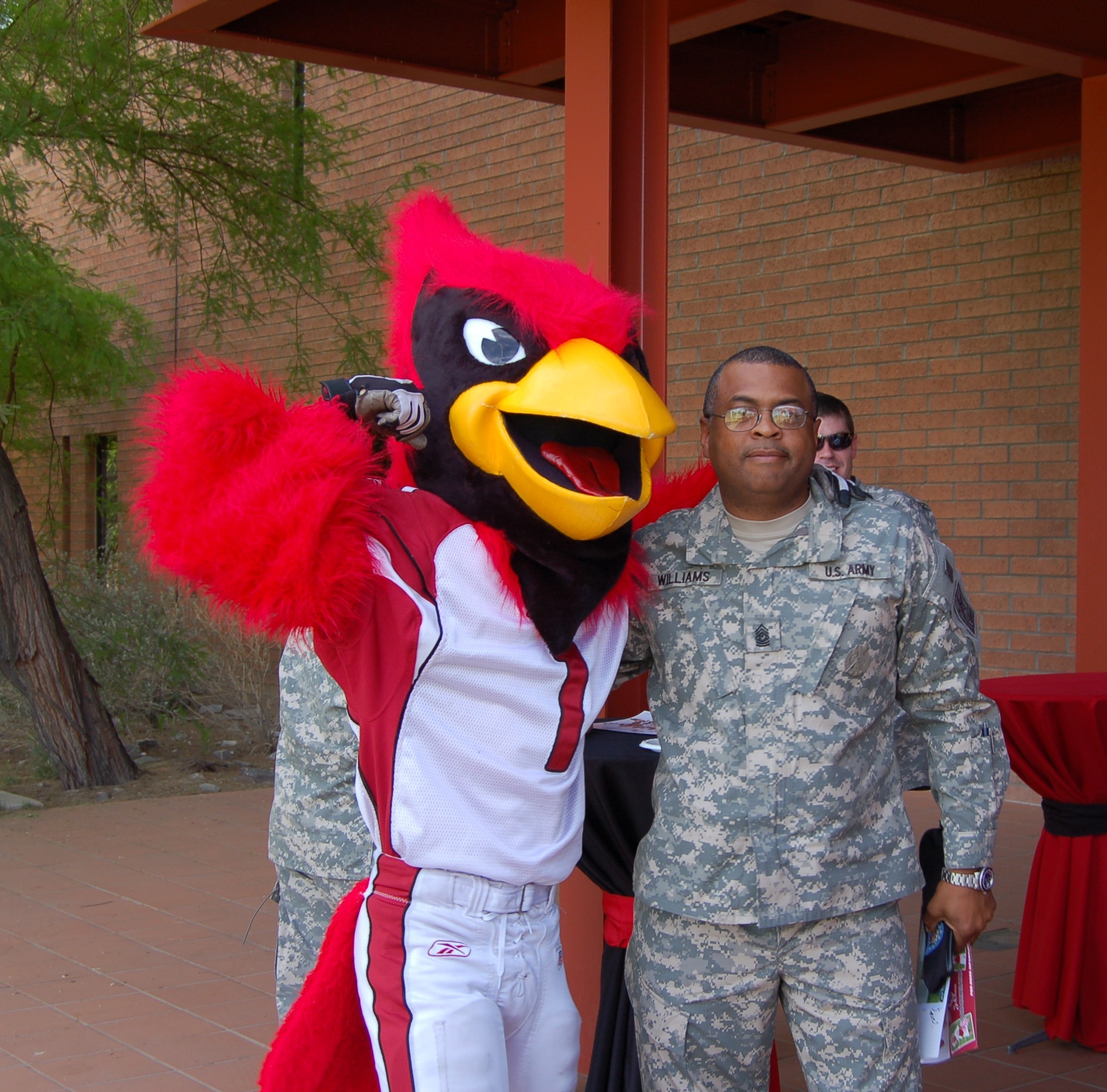'I Love The Opportunity I Have To Change Someone's Life!'
Michael Williams volunteered for USAREC as a temporary assignment - but something remarkable soon happened. When he set out to change other people's lives, he changed his own ... forever.
Whenever Command Sgt. Maj. Michael Williams has doubts, he opens a desk drawer in his Phoenix, Ariz., office and pulls out three very worn letters.
"This is crazy; it was a mistake," the writer says to Williams in the first letter. "What am I doing here' Why did I sign up for this'"
In the second letter, the tone begins to change. There's a note of optimism and a recounting of the training the recruit has received. In the third letter, written proudly from recruit to recruiter, there's an update that the recruit has finished basic training. By embracing the structure and discipline of the Army, the recruit is now ready for a first assignment-and wants to thank Williams for making it possible.
"When I read those letters, it keeps me grounded and reminds me why I do what I do," Williams said. "There's tremendous fulfillment for me in jump-starting someone's career. I love the opportunity I have to change someone's life forever!"
Those letters were written almost 20 years ago when Williams was a young Army recruiter. Twenty-five years into his Army career, Williams, 44, is the senior enlisted adviser to the commander, Phoenix Recruiting Battalion. The unit's 300 Soldiers and civilians recruit for the Army and Army Reserve in Arizona, New Mexico and parts of Texas.
In fiscal year 2008, Phoenix Battalion finished number one in the 5th Recruiting Brigade, reaching 104 percent of its mission goal. This year, the unit expects to reach its annual recruiting goal after just nine months. When the fiscal year ends in September, the battalion will likely have overachieved by from 20 to 30 percent.
Williams attributes his unit's success to the people in the unit, their training and teamwork.
"I have a strong, extremely professional team of first sergeants, and it starts there," he said. "We maintain a very positive atmosphere-we do not manage through fear."
Leading and managing by fear may yield short-term results, said Williams, but "in the long run, you will motivate Soldiers more effectively and be more successful if you stay positive."
The battalion succeeds, says Williams, through "discipline, structure and positive leadership."
The battalion's 52 recruiting stations conduct training every week. Each company trains once a month, and the battalion trains every quarter. Once a month, Williams encourages every recruiting station to knock off work early for team-building exercises that include Soldiers' family members. Williams promotes teamwork.
Recruiters work together to counsel prospects and their Future Soldiers. If one station underperforms, other stations overachieve to keep the unit on track. The battalion conducts recruiting activities at professional football and baseball games. When the Arizona Cardinals and the Arizona Diamondbacks play at home, recruiters go there to promote the Army. Williams encourages recruiters who work at these events to bring their families to enjoy the games.
The battalion also follows the new USAREC policy to cease non-mission-related recruiting work at 5 p.m. Monday through Friday. The policy allows commanders some flexibility, however, since recruiters must sometimes work outside normal duty hours when young prospects and their parents are available for Army interviews. Mission-related work means some nights and weekends.
"This is one of the toughest jobs you'll ever have," said Williams. "But it also can be one of the most rewarding."
Williams has recruited professional football players and college students who were looking for new directions.
"I've signed up people who were in college and thought they wanted to do something different," said Williams. Those students wanted to finish college, but they also felt a need for "additional skills to make themselves more marketable after they left the Army."
Many of Williams's recruits simply had no plan for their lives.
"Some people think you join the Army for the benefits," Williams added. "That's true. But a lot of people join because they want that discipline, that structure to enable them to be successful and achieve more with their lives."
Williams said the biggest benefit to the recruiters themselves is that they learn communications skills that will serve them well both in the Army and in civilian life. They learn how to give presentations to large groups and how to communicate with senior Army leaders.
Another benefit Williams cites is that recruiting duty can enhance a Soldier's promotion potential. Williams notes that recruiting "does not come easily" to some Soldiers. Some people believe introverts can't recruit or that "heroes" in other areas of the Army may have difficulty making the transition.
Williams said that one of his best recruiters is an introvert who struggled at first, but later became a top performer. Once she had the training-and the confidence-she excelled. Another recruiter who was underperforming told Williams he turned things around when he changed his attitude and applied the lessons he'd learned in the Army Recruiter Course.
Williams himself joined the Army in 1984 with a wife and children to support. He first served as a combat engineer, and then completed an assignment in logistics/supply in Korea. When he wanted to do something different, Williams chose recruiting. At first he didn't think of recruiting as his career. Then he discovered that recruiters can change other people's lives, and he was hooked.
CSM Michael Williams' tips for recruiting success
Aca,!Ac Keep a positive attitude. USAREC can coach those who "can't" to succeed, but not those who "won't."
Aca,!Ac Apply the training you receive.
Aca,!Ac Learn something from every recruiter you work with, but latch onto the most successful ones.
Aca,!Ac If you struggle, go back to the basics.
Aca,!Ac Understand, relish, and embrace every opportunity to change people's lives.
Aca,!Ac Keep your Family involved.


Social Sharing